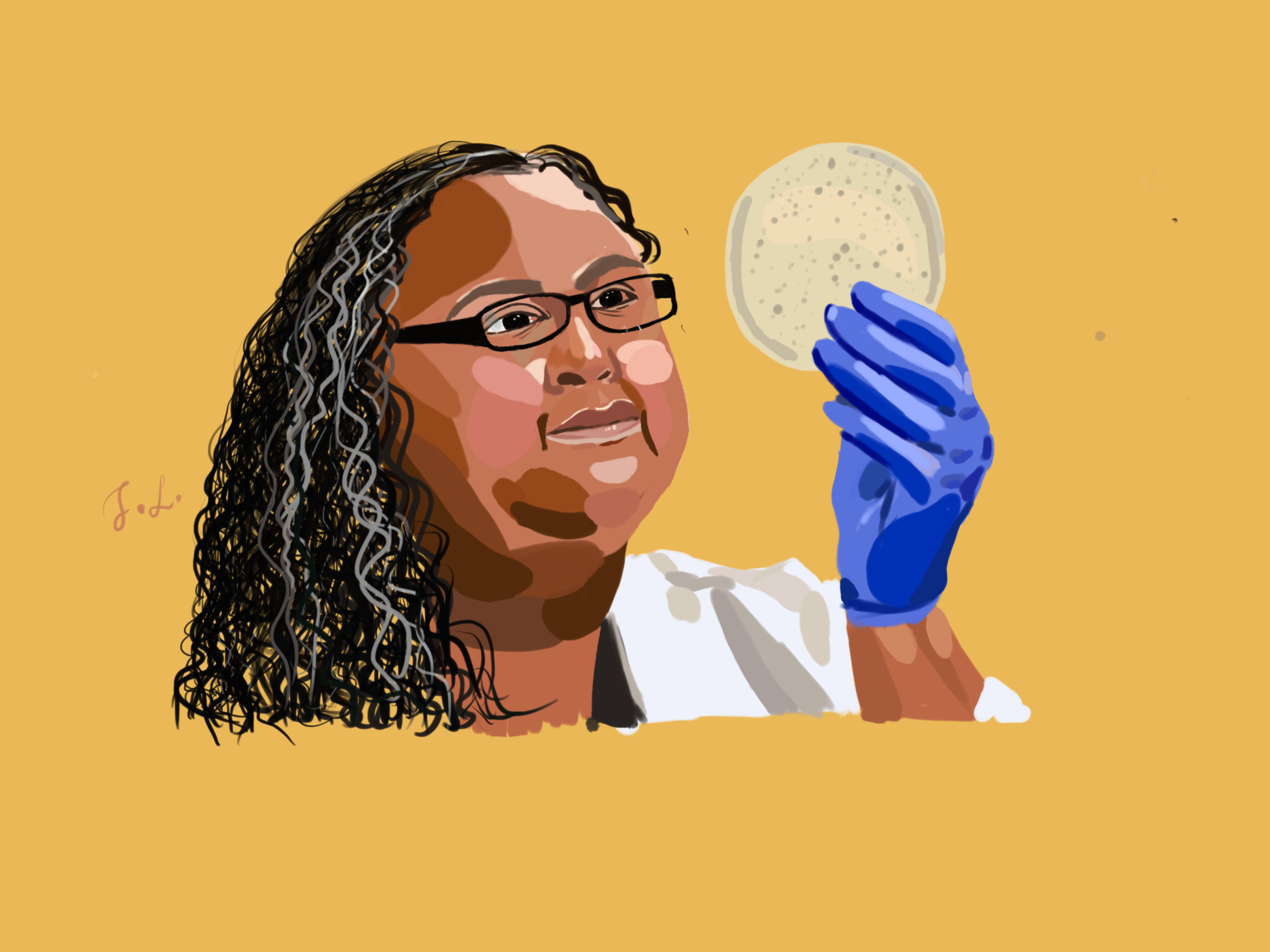
Susanna Liu
Chrystal Starbird, a postdoctoral fellow who works in the Ferguson Lab at the Yale Cancer Biology Institute, recently won the first Cell Press Rising Black Scientists Award. Her winning essay detailing her experiences as a person from an underrepresented group in science will be published in the February issue of the journal Cell.
The Rising Black Scientists Award comprises a $10,000 award and access to $1,000 in scientific materials, along with increased professional visibility for the scientist who wins. According to Starbird, the benefits of the award extend to a building relationship between the winner and the editors of Cell Press who can act as mentors, which is significant for propelling one’s scientific publishing career. The award was created in 2020 with a mission of breaking down barriers and creating opportunities for professional development while making science more inclusive.
“I wrote an essay that will come out February 18th that is actually personal, but I was really happy to write it,” said Starbird, who was a founding member of the Yale Black Postdoctoral Association last year. “From my perspective, I always felt like I was a true outlier in science. Writing something like this lets other people know even if they’re not Black, if they’re just from a low-socioeconomic background, you know if they’re LGBTQ, whatever it is that makes them feel like an outlier or that their cards are stacked against them, that they can succeed.”
The essay details Starbird’s educational journey to gaining her doctorate. While raising three children during graduate school and often feeling like she was the only one who looked like her in scientific spaces, Starbird relied on her optimism and perseverance to finally graduate and perform research on structural biology at Yale.
Starbird reflected on her experience at Yale for the last 3 and a half years as a postdoctoral fellow in a positive light. The University’s vast resources are shared among laboratories, which allows for collaborative research. Starbird works in the lab of Kathryn Ferguson GRD ’96, associate professor of pharmacology.
“It has been a huge pleasure to have Dr. Starbird in my laboratory,” Ferguson wrote in an email to the News. “She was already well-trained as a scientist when she arrived at Yale and works very independently in my laboratory. I look forward to our regular conversations about how things are progressing in her research, at the scientific and experimental levels.”
Starbird emphasized the importance of awards like the Rising Black Scientists Award, which has increased her visibility and has fostered professional relationships crucial to her journey in pursuing faculty positions.
“There are a lot of things that make me an outlier in science,” Starbird said. “I saw almost zero Black faculty the entire time I was coming up through the academic pipeline. I only saw them at conferences. I never actually directly through my institution interacted with one or saw one that exemplified what I hoped to be doing in the future. Graduate school’s hard for anybody, but you have to constantly be telling yourself that even though you don’t see anybody like you succeeding, you can.”
During her time at Yale, Starbird and two other Black female postdocs — postdoctoral associate Aileen Fernandez and postdoctoral fellow Brionna Davis-Reyes — realized the need for an organization that advanced their cause for increased networking and opportunities for Black scientists. Together, in August of 2020, they founded the Yale Black Postdoctoral Association.
Starbird met Fernandez and Davis-Reyes through the Black Lives Matter subgroup of the Yale Postdoctoral Association, which formed after the killings of George Floyd and other Black victims of police brutality. The 3 connected after discussing what they wanted to do with the group, realizing they all wanted to focus their efforts on the retention of Black scientists.
“There is this recruiting effort that happens everywhere, but there isn’t an effort to change the culture,” Fernandez said. “So, you can recruit as many people as you want, but if the culture is terrible, how are you going to keep the people that you’re recruiting?”
Fernandez explained that she and Davis-Reyes were new to Yale at the time and that Starbird was “a natural born leader,” who helped the three of them contact the Office of Diversity, Equity and Inclusion at the Yale School of Medicine. From there, the three scientists formulated a plan for creating the Yale Black Postdoctoral Association, or YBPA.
Although the YBPA was formed less than six months ago, it has already undertaken many initiatives. Three of its projects include the Visibility Committee, Outreach Committee and Professional Development Committee.
Through the work of the Visibility Committee, the YBPA launched an Emerging Scholars Program, where they invite Black scholars — typically postdocs or young faculty members — to give a general talk to showcase the excellence of various Black scientists to the Yale community. They also fundraised over $3,000 for a food bank in New Haven around the holidays last year.
Within the Professional Development Committee, the YBPA tries to select speakers who can discuss specific topics regarding Black scientists navigating professional spaces. For example, Raven Baxter, a science communicator and molecular biologist, was recently invited to talk about unapologetically being themselves within a professional environment. In January, the YBPA also collaborated on the Intersection Science Fellows Symposium, which aimed to gather postdocs preparing for the job market to give talks and highlight their work.
“Chrystal, she’s definitely our de facto leader, as she’s really well plugged into everything,” Davis-Reyes said. “Awards like this are so necessary, although better late than never. People have been saying they’re inspired by her, and seeing her in that position getting that recognition has a positive effect on all of us.”
Starbird researches the structures of cell-surface receptors targeted by immunotherapies in cancer treatment.
Anjali Mangla | anjali.mangla@yale.edu







